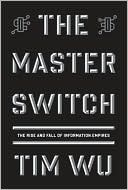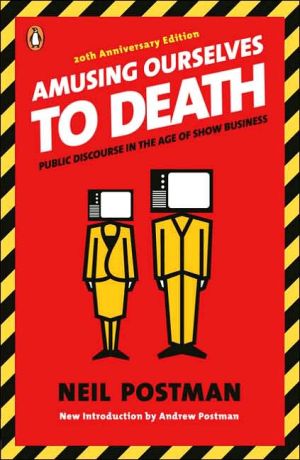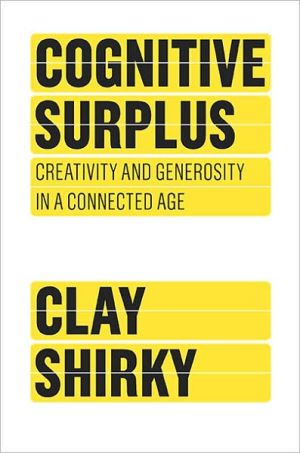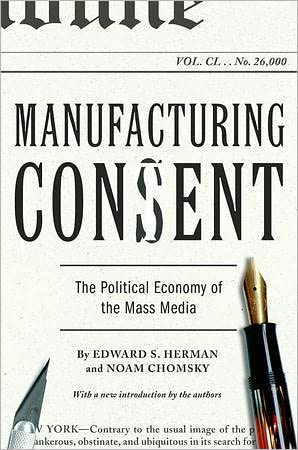The Accidental Guerrilla: Fighting Small Wars in the Midst of a Big One
David Kilcullen is one of the world's most influential experts on counterinsurgency and modern warfare. A Senior Counterinsurgency Advisor to General David Petraeus in Iraq, his vision of war dramatically influenced America's decision to rethink its military strategy in Iraq and implement "the surge."\ Now, in The Accidental Guerrilla, Kilcullen provides a remarkably fresh perspective on the War on Terror. Kilcullen takes us "on the ground" to uncover the face of modern warfare,...
Search in google:
David Kilcullen is one of the world's most influential experts on counterinsurgency and modern warfare, a ground-breaking theorist whose ideas "are revolutionizing military thinking throughout the west" (Washington Post). Indeed, his vision of modern warfare powerfully influenced America's decision to rethink its military strategy in Iraq and implement "the Surge," now recognized as a dramatic success. In The Accidental Guerrilla, Kilcullen provides a remarkably fresh perspective on the War on Terror. Kilcullen takes us "on the ground" to uncover the face of modern warfare, illuminating both the big global war (the "War on Terrorism") and its relation to the associated "small wars" across the globe: Iraq, Afghanistan, Indonesia, Thailand, the Pakistani tribal zones, East Timor and the horn of Africa. Kilcullen sees today's conflicts as a complex interweaving of contrasting trends--local insurgencies seeking autonomy caught up in a broader pan-Islamic campaign--small wars in the midst of a big one. He warns that America's actions in the war on terrorism have tended to conflate these trends, blurring the distinction between local and global struggles and thus enormously complicating our challenges. Indeed, the US had done a poor job of applying different tactics to these very different situations, continually misidentifying insurgents with limited aims and legitimate grievances--whom he calls "accidental guerrillas"--as part of a coordinated worldwide terror network. We must learn how to disentangle these strands, develop strategies that deal with global threats, avoid local conflicts where possible, and win them where necessary. Colored with gripping battlefield experiences that range from the jungles and highlands of Southeast Asia to the mountains of the Afghanistan-Pakistan border to the dusty towns of the Middle East, The Accidental Guerrilla will, quite simply, change the way we think about war. This book is a must read for everyone concerned about the war on terror. The New York Times - Janine di Giovanni Kilcullen draws on his vast experience not only as a dedicated field researcher, but also as a soldier…The Accidental Guerrilla is not an easy book…Even so, [it's] essential…Kilcullen skillfully interprets the future of counterinsurgency, the proper use of military force and what we must learn from our losses and mistakes.
List of AbbreviationsPrologue: West Java, December 19961 The Accidental Guerrilla 12 "The Crazies Will Kill Them": Afghanistan, 2006-2008 393 "The Twenty-First Day": Iraq during the Surge, 2007 1154 "Terrain, Tribes and Terrorists": Conflicts from Indonesia to Europe 1865 "Turning an Elephant Into a Mouse": Beyond the War on Terrorism 263A Note on Sources and Methodology 303Notes 307Index 341
\ From the Publisher"For a wider perspective on the lessons drawn over the past seven years of the 'war on terror', the reader can do no better than turn to Mr Kilcullen's excellent book. The Accidental Guerrilla has an anthropologist's sense of social dynamics and a reporter's eye for telling detail. If T.E. Lawrence evoked the means of waging irregular warfare in his 1926 classic, 'Seven Pillars of Wisdom', Mr Kilcullen describes the practitioner's art of combating insurgents."-The Economist\ "This book should be required reading for every American soldier, as well as anyone involved in the war on terror. Kilcullen's central concept of the 'accidental guerrilla' is brilliant and the policy prescriptions that flow from it important. And that's not all; the book has many more insights drawn from various battlefields."--Fareed Zakaria, Newsweek\ "Kilcullen's compelling argument merits wide attention."--Publishers Weekly Starred Review\ "David Kilcullen, man of action and man of ideas, has produced a rare--and indispensible--guide to understanding and winning the so-called "war on terror" by combining ideas of military theory with those of culture and tradition among tribal peoples."--Professor Akbar Ahmed, Chair of Islamic Studies, American University, Washington DC.\ "Kilcullen's book is about more than the accidental guerrilla...it is about a global insurgency and how to deal with it.... A fine book."--The New Criterion\ "Kilcullen's ideas... are likely to shape U.S. policy in Iraq and Afghanistan for the immediate future."--Laura Miller, Salon.com\ "The Accidental Guerrilla is a master class in counterinsurgency from a man who, as much as anyone, is responsible for recent successes in Iraq."--he Boston Globe\ "Kilcullen's influence on how the U.S. military thought about counterinsurgency campaigning cannot be overstated."--Thomas E. Ricks, author of The Gamble and Fiasco\ "There are some standard texts on [counterinsurgency]. The Accidental Guerrilla is sure to become one."--The Wall Street Journal\ "This book is essential.... Kilcullen skillfully interprets the future of counterinsurgency, the proper use of military force and what we must learn from our losses and mistakes. After reading The Accidental Guerrilla, one is left to wonder why the Pentagon did not listen to his sage advice back in 2003."--New York Times Book Review\ "Kilcullen's book is altogether [] substantial, with analyses, prescriptions and admonitions derived from the study of Islamist violence from England to Thailand, and more largely from the author's varied personal experiences as an observer, combatant and adviser in Timor, Iraq, Afghanistan and Pakistan as well as in the innermost corridors of power, both civil and uniformed. ... [H]e tells many good stories and his analysis is never less than rigorous, and also properly set in the relevant political contexts."--The Times Literary Supplement\ "[Kilcullen's] theories are revolutionizing military thinking throughout the West."--Washington Post\ "He is an energetic writer who avoids military and social-science jargon."--George Packer,The New Yorker\ "[Kilcullen's] arguments about strategy and tactics in combating insurgencies [] are the book's forte. ... Kilcullen argues persuasively."Magill Book Reviews\ \ \ \ \ \ Janine di GiovanniKilcullen draws on his vast experience not only as a dedicated field researcher, but also as a soldier…The Accidental Guerrilla is not an easy book…Even so, [it's] essential…Kilcullen skillfully interprets the future of counterinsurgency, the proper use of military force and what we must learn from our losses and mistakes.\ —The New York Times\ \ \ Publishers WeeklyKilcullen, adviser on counterinsurgency to General Petraeus, defines "accidental guerrillas" as locals fighting primarily because outsiders (often Westerners) are intruding into their physical and cultural space, but they may also be galvanized by high-tech, internationally oriented ideologues. This interaction of two kinds of nonstate opponents renders both traditional counterterrorism and counterinsurgency inadequate. Kilcullen uses Afghanistan and Iraq as primary case studies for a new kind of war that relies on an ability to provoke Western powers into protracted, exhausting, expensive interventions. Kilcullen presents two possible responses. Strategic disruption keeps existing terrorists off balance. Military assistance attacks the conditions producing "accidental guerrillas." That may mean full-spectrum assistance, involving an entire society. Moving beyond a simplistic "war on terror" depends on rebalancing military and nonmilitary elements of power. It calls for a long view, a measured approach and a need to distinguish among various enemies. It requires limiting the role of government agencies in favor of an indirect approach emphasizing local interests and local relationships. Not least, Kilcullen says, breaking the terrorist cycle requires establishing patterns of "virtue, moral authority, and credibility" in the larger society. Kilcullen's compelling argument merits wide attention. (Mar.)\ Copyright © Reed Business Information, a division of Reed Elsevier Inc. All rights reserved.\ \







